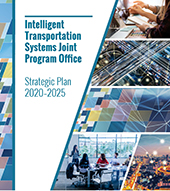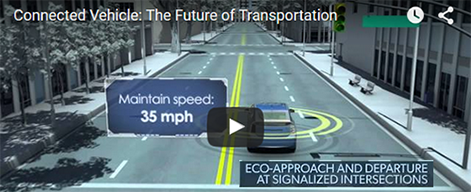About ITS JPO
Deploying Innovative Technologies to Improve Mobility Options for All Travelers
Welcome to another edition of the ITS and You blog post. At the Intelligent Transportation Systems (ITS) Joint Program Office (JPO), innovation and demonstration of the benefits of emerging ITS technologies for underserved populations are top priorities. As such, I’m excited to highlight one of our efforts to improve mobility options for all travelers. In 2019, we launched the Complete Trip – ITS4US Deployment program to help solve the mobility challenges of all travelers, regardless of location, income, or disability, in accessing jobs, education, healthcare, and other activities. We are leading this multimodal, multiyear effort with support from the Office of the Secretary of Transportation (OST), the Federal Transit Administration (FTA), and the Federal Highway Administration (FHWA). The program enables communities to showcase innovative business partnerships, technologies, and practices that promote independent mobility for all.
Take a moment to consider the relative ease with which you complete your daily trips and their various segments. Now, consider the fact that for many underserved populations, one or more of these segments can present unique challenges to independent mobility. The Complete Trip – ITS4US program defines the complete trip concept as a trip composed of several parts or segments that any individual can complete from origin to destination without gaps in the travel chain. This may include multiple links or segments such as trip planning, indoor and outdoor navigation, crossing an intersection, and boarding and transferring between vehicles. The success of a complete trip depends on an individual’s ability to go from origin to destination—reliably, spontaneously, confidently, independently, safely, efficiently, and without any travel gaps.
Innovative ITS technologies can help ensure that our transportation system provides efficient, affordable, and accessible services for people with disabilities, older adults, and other underserved communities that often face greater challenges in accessing essential services. Earlier this year, the U.S. Department of Transportation (U.S. DOT) awarded over $38 million to five teams to demonstrate replicable, real world deployments of integrated technologies to address the challenges of planning and executing complete trips:
- California Association of Coordinated Transportation (CALACT) – Plan, Book, and Pay for Demand-responsive Transit Agencies in CA, OR, or WA ($5,311,000)
- Atlanta Regional Commission (ARC) – Safe Trips in Connected Transportation Network ($9,388,404)
- Heart of Iowa Regional Transit Agency (HIRTA) – Health Connector for the Most Vulnerable: An Inclusive Mobility Experience from Beginning to End ($3,956,806)
- University of Washington – Accessible Mapping Standards and Data Collaboration Drive Accessible Multimodal Active Transportation and Mobility ($11,459,000)
- ICF International, Inc. – Complete Trip Deployment in Buffalo, NY ($8,235,661).
For more information on these projects, please visit the Complete Trip – ITS4US website.

I encourage you to stay connected with the program as Phase 1 of the deployments begin, during which the awardees will develop their preliminary, proposed ideas into structured concepts of complete trip deployment that are suitable for further design, building, testing, and operation.
I also encourage everyone to read the U.S. DOT Strategic Plan on Accessible Transportation, released in January 2021. The plan builds on accomplishments in providing accessible transportation for people with disabilities by continuing to remove barriers and enhance the transportation system.
Ken Leonard
ITS JPO Director
Posted 4/8/21










